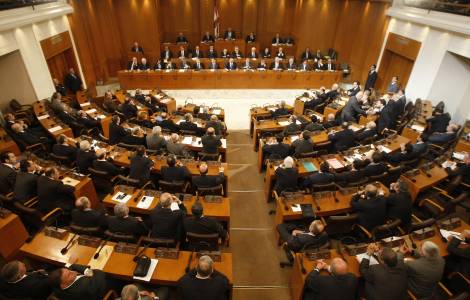
arabpress.eu
Beirut (Agenzia Fides) - In the continuing institutional impasse that characterizes the Lebanese political scene, recent hypotheses to overcome the paralysis and revitalize Parliament by resorting to a "law of necessity", outside the established mechanisms on which the delicate domestic political balance stands (hypotheses prefigured in particular by the President of the House, Nabih Berri) have not yet found consensus in opposing political blocs. But in recent days, the main Christian political acronyms, while deployed on several fronts, expressed in a convergent manner the willingness to actively resume its participation in parliamentary affairs, if at the center of the work the discussion of the renewal of the electoral law is put in discussion in view of the upcoming legislative elections, scheduled for June 2017.
"We want an election law that ensures an effective and fair representation of Christians who are struggling to recover their fundamental rights within the administration and state bodies", says former Minister Gaby Layoun, member of the parliamentary bloc "Change and reform" which is headed by former general Michel Aoun, to a Lebanese newspaper. But also members of the Lebanese Forces, the rival party led by Shamir Geagea, announced their boycott of parliamentary proceedings unless the question of the electoral law is soon put on the agenda. A request which also the Kataeb Party seems to agree. But former Minister Selim Sayegh, representative of Kataeb, said that "Kataeb will participate in a parliamentary session if the election law is on the agenda".
Already in January 2013, the main Christian political forces (Free Patriotic Movement, the Lebanese Forces, Kataeb et Marada), while belonging to different political blocs, had expressed unanimous consent of the bill formulated by the so-called "Orthodox Rassemblement". The controversial reform proposal planned to turn Lebanon into an electoral district where every citizen votes only for members belonging to their religious denomination. (GV) (Agenzia Fides 11/10/2016)